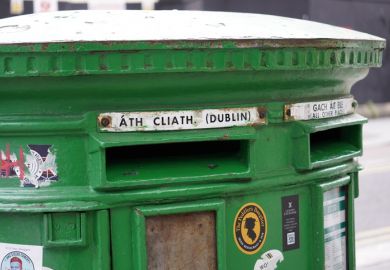Times Higher Education’s recent feature “Books to read before university” made a strong case for the value of reading for new university students, with academics providing recommendations for the books they thought every undergraduate should read. Some powerful arguments were made about why it is so important for students read beyond the disciplinary boundaries of their degree studies, and to undertake some detailed, sustained study of a text.
At many US universities, one activity designed to achieve this end is a common reading programme. All new students are provided with a copy of a book – which may be fiction or non-fiction – and asked to read it before arriving, or in the first few weeks of term.
Several institutions in the UK, including the University of St Andrews and Kingston University, have also introduced common reading programmes. At the University of Nottingham, we ran a pilot reading programme in 2014-15 for new students at one of our halls of residence. It met with a very positive response, and the programme was extended to all students enrolling at the UK campus at the start of the 2015-16 academic year. With F. Scott Fitzgerald’s The Great Gatsby as our text, the scheme was aimed at enhancing the learning experience in a number of ways, including:
• creating a sense of community by providing a useful starting point for conversation among students to build friendships as they begin their degree;
• providing a shared intellectual experience outside of the formal curriculum. As undergraduates typically have not studied identical curriculums at school, there is often little bringing them together with their peers apart from a common determination to learn;
• undertaking informal exercises and assignments aligned to the themes of the selected title, including discussions and debates, structured sessions with academic tutors, and a writing competition for a creative response to the book;
• setting academic expectations by demonstrating a serious purpose from the beginning of students’ degrees, and giving an alternative to the traditional emphasis on social activities in freshers’ week.
Integrated into students’ induction activities, the programme also sought to emphasise the many and varied benefits of wider reading.
We found choosing the right book to be rather difficult. We considered lots of possibilities before alighting on the Fitzgerald classic. Lists are published every year of US universities’ choices, with many opting for contemporary non-fiction, and relatively few for classic novels. Columbia University, distinctively, always provides new students with a copy of The Iliad (presumably in translation). Where books by living authors are chosen, it allows for the possibility of inviting them to undertake a reading and talk to students (sadly not an option with Fitzgerald).
Although running the programme for all new students rather than just one hall of residence proved challenging, there was really great feedback from students, and clearly many benefits, including for those participating at the university’s campuses in Malaysia and China.
Following that success, we are set on running the programme again in 2016-17. We’re still having difficulty choosing the right book this year and our steering group of academic and professional staff from across the university is working hard to narrow down our list. It would be great to hear about other universities offering reading programmes, and in particular about their choice of book. Whatever we choose, I’m really keen to get all of our new students reading.
Paul Greatrix is registrar at the University of Nottingham.
Register to continue
Why register?
- Registration is free and only takes a moment
- Once registered, you can read 3 articles a month
- Sign up for our newsletter
Subscribe
Or subscribe for unlimited access to:
- Unlimited access to news, views, insights & reviews
- Digital editions
- Digital access to THE’s university and college rankings analysis
Already registered or a current subscriber?





